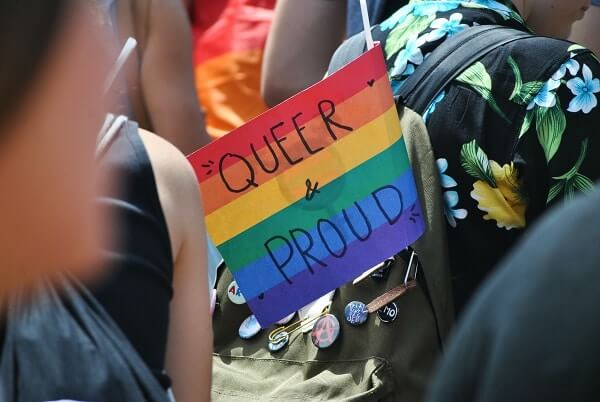Tamil Nadu has just amended its Police Conduct legislation which regulates its police force to include a clause banning the harassment of LGBTQIA+ people. In doing so, it has become the first Indian state to pass laws specifically in order to protect the marginalized community from harassment at the hands of police officers.
The amendment to the Tamil Nadu Subordinate Police Officers’ Conduct Rules was announced in Tamil Nadu’s government gazette on February 16. The amendment followed the Madras high court’s demand that the state must sensitise its police force about LGBTQIA+ issues.
“No police officer shall indulge in any act of harassment of any person belonging to the LGBTQIA (Lesbian, Gay, Bisexual, Transgender, Queer, Intersex, Asexual) + Community and the persons working for the welfare of the said community,” the new clause, 24-C, said.
After hearing the petitions of two women who had to leave their homes after being harassed and bullied by their families, Madras HC directed the Tamil Nadu government to stop discrimination and bias against the LGBTQIA+ community in September 2021. Judge Anand Venkatesh issued the direction after expressing disappointment over complaints of police harassing LGBTQIA+ members as well the NGOs supporting them.
He issued specific orders asking the state’s administration to end police harassment of same-sex couples and added that this behaviour ‘stemmed from apathy and lack of awareness’, Hindustan Times reported.
“We think this is a very significant order and can help in reducing police violence on our communities. We have already lost so many of our trans brothers and sisters to harassment and brutality. We also face everyday harassment and torture at the hands of policemen. We hope this law is strongly implemented to end this,” Grace Banu, a Dalit and transgender rights activist, told the Indian daily.
The September 2021 direction also heavily reprimanded the media for ‘insensitive’ reporting about the members of the LGBTQIA+ community.
“The reportage of the most intimate and personal aspects of an individual’s identity by the contemporary vernacular media is deeply problematic,” Justice Venkatesh said.
“It not only reflects the pre-existing harmful stigmatisation of society, but also perpetuates it. Stigmatising inaccurate and inherently unscientific terms like ‘a man turned into a woman’ or a ‘woman turned into a man’ are based on queerphobia and cannot be tolerated or entertained any further. It is high time journalists stick to sensitive and inclusive terms on the gender spectrum,” he added.
READ ALSO: Advocate Saurabh Kirpal could be India’s first gay HC judge





